Hypochondria: Causes, Symptoms and Treatment

It's okay to take care of your health. It is not normal for this concern to overstep reasonable boundaries and become an obsession with possible existing illnesses. A person begins to invent illnesses for himself, and after a while he actually feels all the symptoms of serious illnesses. Such people are called hypochondriacs or imaginary patients.
What it is?
Hypochondria (hypochondriacal syndrome) is called a pathological state of the human psyche, in which he is irrational, overly worried about his health. And all would be fine if this concern was limited to taking vitamins, adequate prophylaxis and washing hands. This is not enough for a hypochondriac - he is literally sure that he has one or several rare, fatal diseases that for some reason remain unnoticed by doctors.
The hypochondriac complains of a variety of symptoms, while he does not deceive, since he really feels almost everything he describes. The fact is that ordinary sensations, which we do not pay attention to, for a hypochondriac acquire strength, power and significance. In every gurgle of his stomach, he can see convincing signs of a serious illness.
At the same time, sometimes he “knows exactly” what he is sick with, but then he can change his mind and be sure of a completely different diagnosis.
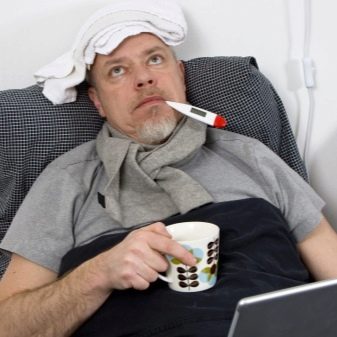

Hypochondria got its name from the Greek word ὑπο-χόνδριον, which translates as "hypochondrium". The ancient Greeks were absolutely sure that it was somewhere in the hypochondrium that the source of the suffering of the hypochondriac was located.Most often, people with such a mental disorder complained about pain in this area.
In the long history of hypochondria, it has been called the most various neurotic, mental statesuntil the wording narrowed down to a specific and understandable meaning - an imaginary disease in which a person is convinced. The International Classifier of Diseases in force today (ICD-10) classifies hypochondria as a mental disorder of the somatoform type. The code F45 is assigned to the disease.
Hypochondria is widespread: experts say that up to 15% of all those who go to clinics and hospitals for medical help suffer from this disorder to one degree or another. It is difficult to determine gender characteristics, some experts are sure that the disorder is more characteristic of men, others argue that this mental illness occurs with the same frequency both among the stronger sex and among women. But it was noticed that in men the disease usually starts after 30 years, and in women - after 40.
In about 25% of cases, treatment turns out to be ineffective - the disorder stubbornly returns, which means that every fourth hypochondriac becomes a chronic patient and a constant patient, not only of a cardiologist or therapist, to whom he often visits, but also of a psychiatrist.
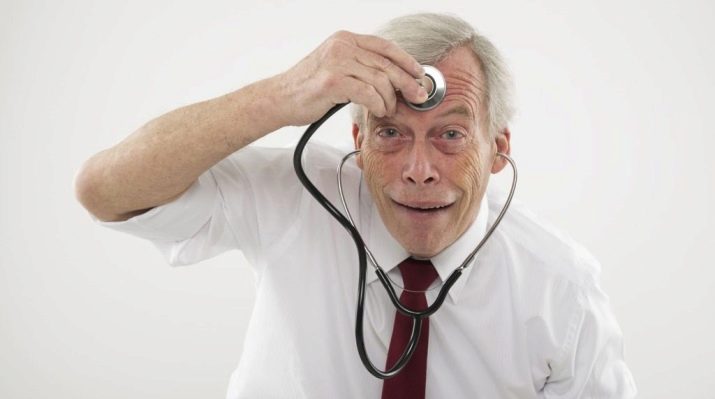
Is hypochondria dangerous? Most likely, yes, because it affects the physical state more than other mental disorders, the so-called psychosomatic mechanisms are turned on (thinking about the disease, a person ultimately creates a disease). At the same time, the psychology of hypochondriacs changes little: upon learning about the real diagnosis, many say something like “I knew it!”. Since hypochondria has been known to mankind for more than 2 thousand years, then history has preserved many names of great people who suffered from this disorder.
- Writer Edgar Alan Poe repeatedly wrote letters to his relatives with messages that he did not have long to live, his death was inevitable, since he was terminally ill. He really was sure that he had about two weeks to live, but the doctors found Edgar Poe quite healthy.
- Artist Edwin Henry Landseer - one of the most beloved painters of Queen Victoria - was sure that he was sick, and fatally. He tried to "drown" the disease with alcohol and opium, which actually ruined him. As a result, he ended up in an insane asylum, but it was not possible to cure him.
- The writer Charlotte Brontë (the author of the legendary "Jane Eyre") as a child experienced a series of deaths of loved ones, as a result of which she was afraid to die throughout her life and suffered from hypochondria (this ailment in Victorian England was called "the dark enemy of mankind"). Most of all, Charlotte was afraid of dying of tuberculosis. Presumably, she died from him (the exact cause of the writer's death was never established).
- Renowned reformer, public figure and sister of mercy Florence Nightingale, for which military hospitals during the Crimean War became a second home, fell ill with Crimean fever. This convinced her that she must die soon. As a result, at the age of 38, Florence threw everything and went to bed, where she spent most of her life (she lived until she was 90) - she was afraid to get up so as not to provoke a second attack of fever.
- Evolutionary researcher Charles Darwin after an expedition to the Galapagos Islands, he returned with the conviction that he was suffering from an incurable terrible disease that causes abdominal pain, headaches, fatigue and vomiting. With the confidence that a strange tropical disease would certainly kill him, Darwin lived for 40 years. He kept a diary describing observations of his symptoms, including flatulence. Doctors already then suspected hypochondria in the author of the theory of evolution.
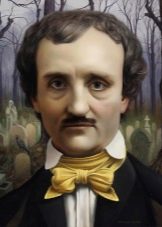
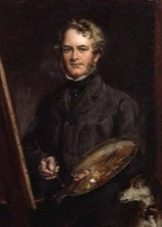


Classification
Psychotherapists have been observing hypochondriacs for a long time and have come to the conclusion that this mental disorder can exist in three different types.
Obsessive
Obsessive hypochondria is characteristic of overly vulnerable and impressionable people, usually occurs against the background of severe stress, experiences. A hypochondriac is a person with a very rich imagination. The disorder arises easily, it can even be provoked by the thoughtlessly thrown words of a doctor who did not mean anything "like that" at all, the stories of acquaintances or friends about the disease, as well as reading medical literature or watching relevant films and programs. It is noteworthy that such a form often develops in people who are related to medicine, among medical students, and therefore hypochondria is often referred to as a "third-year ailment."
Passion for reading medical books can also lead to mild hypochondria. (a person, if desired, finds in himself the symptoms of almost all diseases from the therapist's reference book - this is a proven fact). It is not difficult to distinguish such a hypochondriacal disorder: it almost always manifests itself in sudden attacks of severe anxiety for one's precious health. The hypochondriac is afraid of catching a cold, poisoning, getting infected. But at the same time he understands and realizes that it is in his power to avoid the disease.
True, this does not in the least reduce anxiety.


Overvalued
Hypertrophied health care. No, everyone around is clear, everything looks very logical - a person wants to stay healthy, but the prevention itself is deliberately grandiose: a hypochondriac has to make a lot of efforts to achieve the state of health he wants. Prevention measures for one or another ailment are in the nature of a galactic operation and cover all spheres of life. For example, a person is extremely concerned about the prevention of oncology and, in order not to get cancer, he constantly studies the developments of scientists, the advice of traditional medicine, at the same time drinks urine and aviation kerosene, eats kilograms of fresh tomatoes just because someone said that it helps from cancer.
It is also easy to distinguish such a hypochondriac - this person is the dream of any healer, medicine man, as well as manufacturers of homeopathic medicines and nanodevices, which "should help from everything."
Overvalued hypochondriacs are ready to give their last money for a decoction from the clutches of frogs, if it helps them prevent a terrible disease, and are also ready to test on themselves all the methods they hear about, even if they are frankly pseudoscientific.
The overvalued hypochondriac always has several pseudoscientific theories in store that explain the benefits of frog legs, kerosene and tomatoes. If there are no such theories, the hypochondriac will invent them. For such hypochondriacs, the most important thing is their health, and they are ready to constantly deal with its preservation and strengthening. Family, work, friendship, communication, hobbies - everything fades into the background.
All the money goes to frog legs and kerosene, to consult with healers. Families often collapse at this stage - it is very difficult to get along under one roof with such overvalued hypochondriacs.
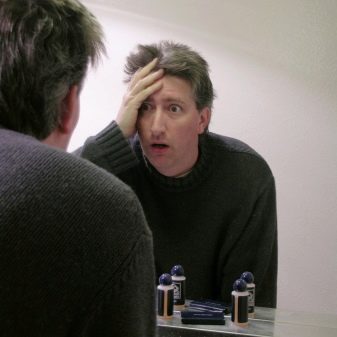
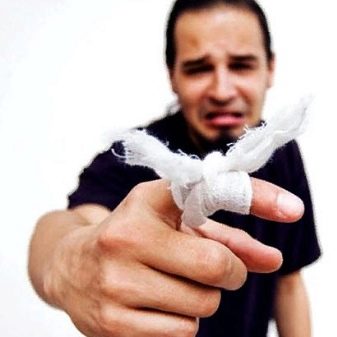
Delusional
This form of disorder based on pathological findings and beliefs of the patient. The conclusions of the hypochondriac are illogical, in a conversation he can connect what is impossible to combine ("God's gift and scrambled eggs"). In the same illogical way, hypochondriacs talk about their terrible disease, suspecting doctors of concealing the exact diagnosis. Such hypochondriacs are looking for indirect confirmation of their ailment in everything and always (“my house is built of hazardous materials, I definitely have cancer, the neighbors on the left have cancer, the neighbors on the right also have someone who is sick, which means that we are deliberately infected, I am also sick ").
Attempts to dissuade such a hypochondriac are initially doomed to failure. - he will listen suspiciously and immediately accuse you of deception, collusion with the government, the mafia of doctors. When a refusal in treatment or surgery is received, for a delusional hypochondriac, this is proof of his doom (“they don’t put him in the hospital because it’s too late to treat him”).
Often this hypochondria accompanies schizophrenia or severe depression. The latter can lead to an attempt to commit suicide.
In connection with the development of the Internet and its accessibility to the population, psychiatrists have added a concomitant disorder to the register of diseases, in which a person tries to diagnose himself and be treated on his own through publications on the Internet. it cyberchondria (synonym - informational hypochondria). This symptom can occur in any of the three main clinical disorders.

Reasons for the appearance
Why such a mental disorder develops is difficult to answer unequivocally - there are several opinions and hypotheses on this matter. Primarily considered genetic theory - a person can inherit suspiciousness, impressionability, rich imagination, a high level of anxiety, sensitivity from their parents. These are not only character traits, but also features of the organization of the nervous system.
It is obvious that people with hypochondria mistakenly perceive the signals of their body, they interpret and interpret them differently. Even a slight tingling sensation in the limbs can be regarded by them as pain. Obviously, there is an error either in the work of the brain, which incorrectly recognizes the signal, or in the peripheral nerves, which transmit this signal incorrectly. This question is still open. That is why even the most innocent sensations in the body are of such great importance to them and are perceived as some signs of pathologies.

The likelihood of developing hypochondria can be affected by childhood diseases - if a person at a tender age has had long-term and serious illnesses, the attitude towards them can persist for life. Overly caring parents, who are very worried about the child's health, can also make a child a hypochondriac, and with every banal scratch they make such a noise with a doctor's call and the purchase of a lot of medicines that for a child health issues simply cannot be different - only super-significant, as they have taught.
A lingering depressive state, experienced severe stress, a neurotic state are considered grateful grounds for the development of hypochondria.... When a person is in such states, his psyche is depleted, and he literally at the physical level begins to feel weak and vulnerable. A large proportion of psychiatrists consider hypochondriacal syndrome to be an excessive, hypertrophied instinct for self-preservation, as well as an extreme degree of manifestation thanatophobia (pathological fear of death).
It is noteworthy that hypochondriacs are often deceived by their own brain: they do not know how to get sick, although they try to do it.
When a hypochondriac begins to have a real illness, for some reason its symptoms and signs often go unnoticed or qualify as insignificant, while normal, physiological sensations cause severe anxiety.


How does the disorder manifest?
Hypochondriacs complain. Everything hurts, nothing helps - that's about them. Moreover, complaints can be about pain in different organs: today the heart hurts, tomorrow - the head, in a week - the kidneys. Some (savvy) come to an appointment with a therapist with a ready-made diagnosis and treatment regimen, and the doctor is expected to approve and confirm suspicions. If the doctor makes a different diagnosis or says that the patient is healthy, this causes displeasure, a feeling of dissatisfaction.
Often such a patient expresses doubts about the training of a doctor and goes to another specialist. And so on until the patient's name becomes known to all doctors in the hospital or in the city.The main symptom that should alert an experienced therapist is inconsistency... At one appointment, the patient confidently says that he has "like bowel cancer", and at the next, he with the same convincing assurance that he has intestinal obstruction.
Most often, hypochondriacs complain about the work of the heart and blood vessels, kidneys, bladder, stomach, intestines and brain. In second place in terms of frequency are infectious diseases (hepatitis, HIV), as well as cancer.
The pains described by hypochondriacs are very interesting: they usually do not fit into the clinical picture of any disease. This is most often paresthesia - tingling, numbness. In second place in popularity is psychalgia (pains that are not associated with the work of organs and their condition, often a person finds it difficult to show exactly where it hurts). Senestalgia is quite common (pains are very pretentious - it burns, twists, shoots, twists). Some patients generally find it difficult to describe exactly how it hurts, only indicating that they are experiencing severe discomfort.
The presence of hypochondria is also reflected in human behavior, in his interaction with others. In men and women, suspiciousness increases, they become selfish. Own "sores" become more important than the interests of the family, loved ones, children. They demand the participation of relatives, harass them with demands for care, guardianship, sympathy. If relatives try with their last bit of strength to maintain the illusion of calmness, this is certainly perceived by the hypochondriac as signs of dislike, indifference, which further plunges them into a state of depression and doom.
In adolescents and children, hypochondria is extremely rare.
The classic behavior of a hypochondriac is unfounded accusations against loved ones in the absence of attention. The hypochondriac is not happy about anything, it is impossible to captivate him with something, to tear him out of his thoughts and efforts for the benefit of his own health. Gradually, hypochondriacs come to the conclusion that the world is inhabited by callous, indifferent people (relatives, doctors) who do not want to take their problem seriously.
Because of this, the frequency of social contacts decreases, a person becomes isolated, refuses to work, from marriage, since these aspects of life can rob them of the "remnants of their precious health." The excuse most often sounds like this: "I have to live, maybe there are two Mondays left."

Diagnostics
Even if the general practitioner is absolutely sure that a hypochondriac is sitting in front of him, he is obliged to prescribe the necessary examinations and tests in order to exclude somatic (bodily) causes of pain. A fairly wide range of research is being carried out - laboratory, instrumental.
If the disease is not detected, the person is advised to visit psychiatrist... This specialist performs tests to distinguish hypochondria from depression, schizophrenia and other illnesses, or to detect comorbid mental illnesses.
How to treat?
Where the treatment will take place - at home or in a psychiatric hospital - the doctor decides. In case of severe hypochondria associated with suicidal thoughts, inpatient treatment is recommended. In other cases, this question is completely left to the discretion of the doctor. Medication for hypochondriacs is considered undesirable. The fact is that the very fact of prescribing pills or injections causes additional conviction in patients of their serious illness.
The only exceptions are severe cases of hypochondria with depression or schizophrenia - in these cases, antidepressants, antipsychotics (if indicated) are recommended.
The hypochondriac should take medications under the supervision of medical personnel, otherwise exceeding the dosage, refusal to take in favor of frog legs and other methods of self-medication are not excluded. The main treatment for hypochondria is psychotherapy. A rational technique is used that helps to convince the patient of the erroneousness of his opinions.
Well proven gestalt therapy, family therapy and cognitive behavioral therapy... The task of the doctor is to create new, positive attitudes for the patient that will help him to be more critical of himself, his attitudes and beliefs.
Is it possible to completely cure a person? It is possible, but on condition that he himself is interested in this. Without the proper level of motivation, all the efforts of the psychotherapist will be useless and ineffective.
It is with motivation that the main difficulty usually arises - the hypochondriac is not opposed to being treated, but not from what they want to treat him for, but from imaginary cancer or AIDS. Treatment forecasts are therefore ambiguous: according to statistics up to 25% of patients with hypochondria experience a relapse within a year - thoughts about the alleged illness come back again.

How to deal with hypochondria on your own?
Few of the hypochondriacs are puzzled by such a question. But the likelihood of curing a person at home is very worried about his relatives and friends. First of all, it should be clearly understood that hypochondria is a mental illness, and this group of human ailments usually does not respond to home treatment... It is impossible to get rid of obsession and delusion with folk remedies, to cope with the obsession to prevent cancer with the help of a shower and massage. Therefore, a psychiatrist should deal with the treatment.
But it is in the power of the relatives and the hypochondriac himself to help this specialist to defeat the disease. And the first measure of self-help is the correct organization of your life. You need to leave as little time as possible for thinking and as much as possible to be occupied with chores (household, social, hobbies). Very often, psychotherapists note that the condition of a hypochondriac becomes better if relatives or friends give him a pet - a cat or a dog.
Also, experts ask relatives or comrades of the patient to do him a great favor - to collect and hide away all medical books - reference books, encyclopedias, as well as all the numerous copies of the magazine "Our Health" or similar publications to which a person suffering from hypochondria has long been subscribed.
Relatives are asked to restrict patients from watching medical programs and films.
The therapy will go much faster if the patient can see positive examples, for example, to learn about the stories of people who have been healed of cancer, happily and fully living with diagnoses such as HIV, AIDS, autoimmune diseases. There are enough such examples, today there are TV series, books, films about them - make a selection. It is important to devote enough time to sleep at night, to eat well, to exclude from the patient's life all of his kerosene and frog legs that he tried to take (this must be done after the psychotherapist gives his permission for such an action).
A person must learn to relax - practice meditation, yoga. Help from loved ones is also needed in order to more often bring the hypochondriac out into the world - to cinemas, to exhibitions, to concerts. For him, in the process of treatment, new impressions are very important, which have nothing to do with medicine and diseases.
You can't put pressure on a hypochondriac, demand him to gather courage and finally overcome his problem. He cannot do it. For him, this attitude means a struggle with himself, and for this reason, self-help for hypochondriacal syndrome should be reasonable and consistent with the treating psychiatrist.


Preventive measures
Mental illnesses are quite difficult to prevent, because all the factors that can affect their occurrence have not been studied, much is not yet obvious to doctors and scientists. In the case of hypochondriacal syndrome, preventive measures should be taken as early as childhood.
- Do not scare the child with terrible diseases (“Take off your scarf, you will catch a cold and die”, “if you prick your finger with a needle, you will bleed or contract a dangerous disease”).The child's attitude to illness must be adequate.
- Do not act severely frightened if the child has received a bruise or bruise. - they do not die from this, but they easily become hypochondriacs against the background of constant parental neurotic anxiety for the child's health.
Adults should not get carried away with self-diagnostics from books, the Internet, or medical films. Self-diagnosis has not led anyone to any good yet. If a person is very impressionable, then even pictures in a medical encyclopedia can cause him the initial stages of hypochondria.
If a person has previously been treated for hypochondria, it is important to visit a psychologist or psychotherapist as needed - after each episode of an obsessive thought about a possible illness. Very often there is a need for preventive treatment (prophylactic) and it, like the main treatment, is not based at all on medications, but on psychological work.
The following video will tell you about the symptoms and causes of hypochondria.








